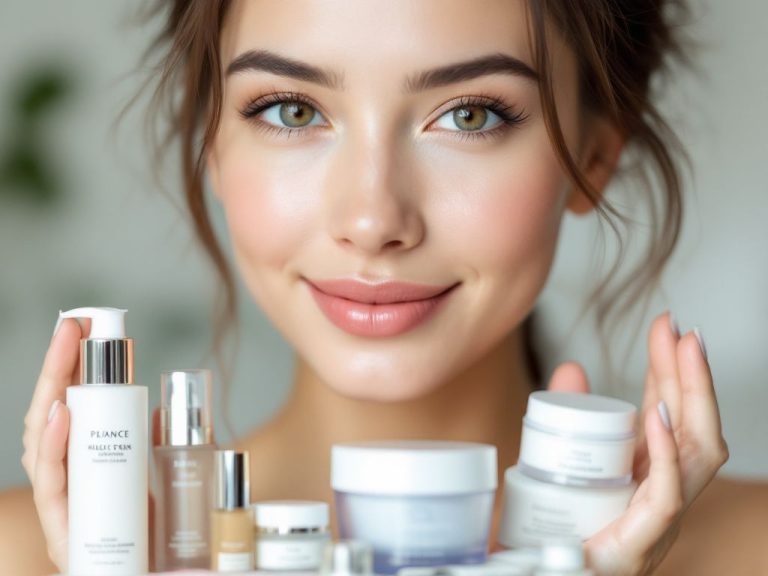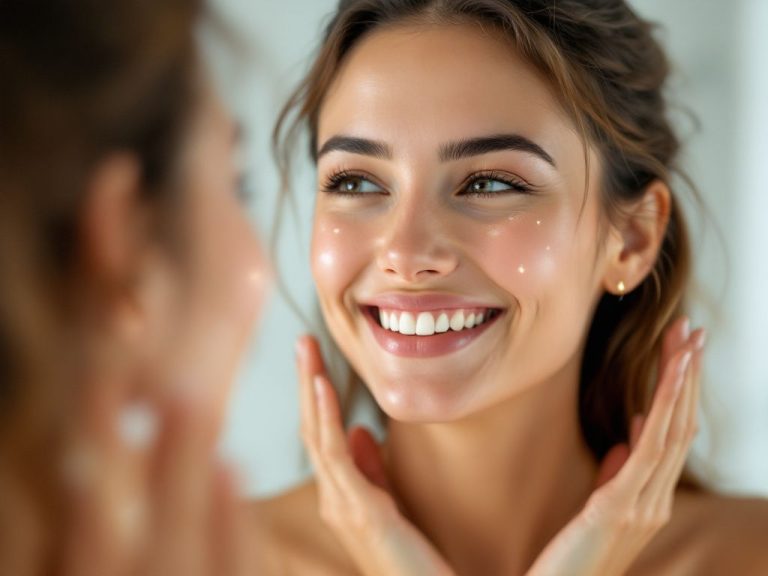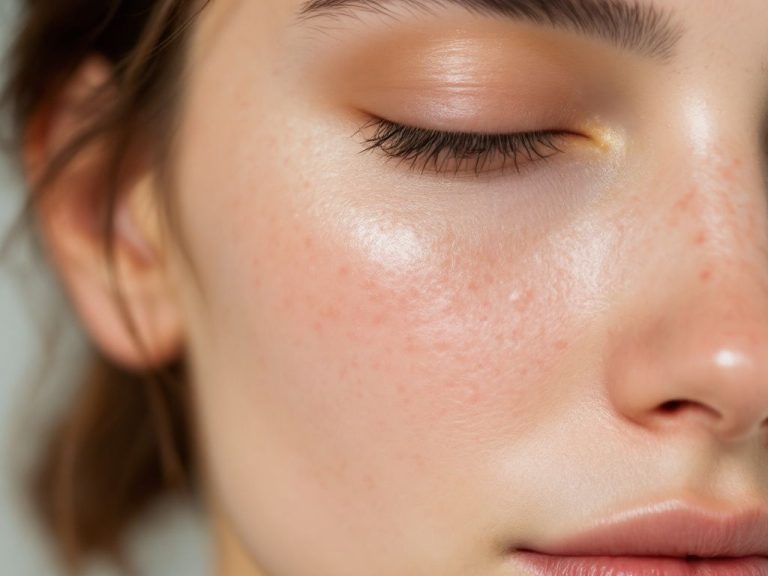Hey there! If you’ve ever noticed your skin breaking out when you’re stressed, you’re not alone. The relationship between stress and acne is real, and understanding it can help you manage those pesky breakouts in a more holistic, wellness-oriented way. It’s more than just skin deep—our mental health is closely tied to how our skin behaves. So, let’s dive into how that stress in your mind finds its way onto your face, and talk about what you can do about it. We’ve all been there, so let’s chat about ways we might just get a handle on stress-related acne.
Table of Contents
ToggleThe Story of Stress and Your Skin
So, what’s going on here? Imagine a tough day at work or a looming deadline for an assignment. You’re stressed out—suddenly, bam, acne pops up. But why? Stress triggers a complex chain reaction. Your body starts to produce stress hormones like cortisol, which gears up your body for ‘fight or flight.’ While this might have helped our ancestors deal with immediate threats like wild animals, it has a slightly different impact on our modern lives, triggering everything from headaches to, yep, acne.
How Stress Fuels Acne
When cortisol is on the rise, it can cause your skin’s sebaceous glands to go into overdrive, producing more oil. More oil? Well, that’s a perfect recipe for clogged pores. And let’s not forget: your body’s healing process gets a bit sluggish when you’re stressed, making existing acne slow to fade. It’s this cycle that can make stress-related acne a tough nut to crack.
The Mental Health–Skin Connection
Let’s dive deeper. Have you noticed your mood slumping when your skin is breaking out? Acne doesn’t just take a toll on your skin—it can also affect your mental health. The skin-brain connection is powerful, impacting not just how you look but how you feel. Feeling irritated by both stress and acne? Understandable. It’s a cycle that’s tough to break out of, but acknowledging it is the first step.

Why Skin Matters for Wellness
Think of your skin as more than just a protective layer. It’s a mirror reflecting your internal health—including your mental state. When stress takes its toll on your mental wellbeing, your skin responds in kind. They’re all interconnected; taking care of one supports the other.
Say Hello to a More Mindful Skincare Routine
Let’s add the concept of a mindful skincare routine to our toolbox. Giving your skin some tender loving care can actually help signal your body to calm down, reducing stress levels.
Simple Steps to Pamper Your Skin
- Cleanse Gently – No need for harsh scrubbing. A mild cleanser can do wonders. Think of this as a fresh start after a long day.
- Moisturize, Always – Hydration can keep skin balanced and thwart overproduction of oil. A light, non-comedogenic moisturizer keeps your skin happy.
- Spot Treatment, When Needed – A bit of salicylic acid or benzoyl peroxide can keep pimples at bay without dousing your face entirely in astringents.
- Weekly Masking – Set aside some ‘me time’ with clay masks or soothing face masks to draw impurities and calm inflamed skin.
- 5. **Digestive Boost with Skin-loving Foods — Add foods rich in zinc, omega fatty acids, and vitamins A and E, supporting both mental wellbeing and skin health.
Managing Stress for Clearer Skin
Remember, this is a journey, not a race. Beginning to manage your stress doesn’t require an overhaul of your entire life. Small steps are effective! Let’s get those stress levels in check and watch those stress-triggered breakouts take a back seat.
Embrace Meditation and Mindfulness

Finding quiet moments for yourself can be a game-changer. Start simply: sit down, close your eyes, and take a few deep breaths. Drawing a mental boundary between the chaos and your calm is powerful.
Get Moving
Okay, so workouts might get wrapped up in fitness goals, but even a brisk walk or a little dance in your living room releases endorphins which combat stress hormones like cortisol. Plus, sweating out toxins? Bonus!
Sleep: Your Secret Weapon
Listen, your skin repairs itself while you’re catching those Z’s. Six to eight hours of good quality sleep supports skin recovery from inflammation and oil imbalances induced by stress. Try creating a calming bedtime routine; wind down with a book or some soothing music to set the stage for restful sleep.
Hormonal Drama: When Stress Ups the Ante
When all else fails? Hey, no shame here. Sometimes, stress and hormones decide to gang up— and you’re caught in the crossfires. Our bodies respond to acute stress differently from chronic stress, often pushing your adrenals to release even more androgens. That’s not fun for your skin, as these androgens can trigger pimples and cysts, especially around the jawline.
Professional Help: Know When to Reach Out

When things just aren’t improving, consider speaking to a professional. Dermatologists or mental health professionals can offer guidance, whether it’s a strategic approach to skincare or learning new stress management techniques. You’re not alone, and help is available.
Summary: The Balance between Mind and Skin
So, quick recap: we’ve touched on how stress-related acne is a tangible, manageable foe. Managing stress and taking care of your skin go hand in hand—a true act of self-care. Remember, healthy skin is part of holistic health. Practicing mindful skincare and realistic stress management not only helps with acne but boosts your overall wellbeing.
Your Wellness Routine: Everyday Practice
Developing a routine isn’t just about problem-solving—it’s about creating an everyday practice:
- Build in stress-monitoring check-ins throughout the day.
- Approach skin care like you would a favorite hobby rather than a chore.
- Celebrate small successes in your skin journey.
Whether you’re just beginning to notice the stress-acne connection or have been battling breakouts for years, give some of these tips a try. Trust me on this one, taking care of your mind and skin simultaneously is a refreshing approach worth embracing.
Remember, achieving wellness is about balance. Keep the conversation going, keep listening to your body, and most importantly, be kind to yourself along the way. You’ve got this—here’s to clearer skin and a clearer mind!
Frequently Asked Questions
Does stress directly cause acne?
Stress does not directly cause acne, but it can trigger or worsen existing acne by affecting hormone balance and the skin’s immune function. Stress can increase the secretion of adrenal androgens and stimulate the sebaceous glands to produce more oil, which can clog pores and lead to acne[1][3][5).
How does stress affect the severity of acne?
Stress can increase the severity of acne by several mechanisms, including increasing the production of sebum, enhancing inflammation, and delaying the healing of acne lesions. Studies have shown a positive correlation between stress levels and the severity of acne, indicating that higher stress levels can lead to worse acne outbreaks[2][3][4).
What are some common factors that can exacerbate acne, aside from stress?
Besides stress, other factors that can exacerbate acne include family history, age, certain medications, smoking, diet, environmental irritants, and the use of oily hair and skin products. Additionally, hormonal changes, such as those during puberty, pregnancy, or menopause, can also play a significant role[1][4][5).
How can stress-related acne be managed and treated?
Managing stress-related acne involves a combination of skincare practices, stress reduction techniques, and medical treatments. This includes using topical and oral medications like benzoyl peroxide, retinoids, and antibiotics, as well as practicing relaxation techniques such as deep breathing, meditation, and maintaining a healthy lifestyle. Avoiding picking or squeezing pimples and using non-comedogenic products can also help[1][3][4).
References







